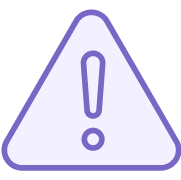Las Vegas Pedestrian Accident Lawyer
WINDER LAW FIRM
Hit While Walking? You Deserve Help, Not Hassle. Worried about medical bills, lost wages, and other expenses due to a pedestrian accident? A Las Vegas Pedestrian Lawyer can help. Let’s discuss your case in a free case review today.
Proven Results – Focused on helping injury victims seek fair compensation.
No Win, No Fee – You won’t owe legal fees unless we win. Costs and opposing party fees may apply.
Local Insight – Understanding of state and local laws to strengthen your case.

Skilled and licensed professional lawyers
Why choose us
You’ve been injured and may be facing a difficult financial and emotional recovery. We’re here to help you understand your options and take legal action. At Winder Law Firm, we provide clear guidance, timely action, and compassionate legal support every step of the way.

Straight Answers. Real Clarity.
We don’t sugarcoat or overcomplicate. You’ll get straightforward legal guidance and answers.

Highly Rated on Google & Yelp.
Recognized for our dedication and client-focused service.

Fast, Strategic Action.
We don’t sit on cases. From day one, we move quickly to secure treatment, gather evidence, and pursue justice.

Care & Commitment.
We will stand by you with compassion and strong legal representation.
 Pedestrian Accident Lawsuit Overview
Pedestrian Accident Lawsuit Overview
Do I have a case?
If you were hit by a car while walking and the driver was at fault, you may have a case. Learn More.
Can I seek financial compensation for my injuries?
You may be eligible for compensation for medical bills, lost income, and other damages depending on your situation. Learn More.
How long do I have to bring a lawsuit?
You usually have 2 years to file a personal injury claim in Nevada. Learn More.
What if I was partially at fault?
Nevada law says you can get compensation as long as you were less than 51% to blame. Learn More.
Can I afford a lawyer?
You won’t pay any legal fees unless we recover compensation for you. Costs and opposing party fees may apply.
Can I get medical treatment without insurance?
Some doctors work on a lien, meaning they get paid later from your settlement.
National Top 100 Black Lawyers
American Association for Justice
Nevada Justice Association
What We’ll Do For You
Our lawyers will get to work, helping you focus on recovery while staying informed. If you decide to work with Winder Law Firm, here is what we can do for you.
Pursue Fair Compensation
If you’ve been injured, we want to help you get your bills paid, your wages replaced, and your life back on track. We work to recover losses. This includes medical and recovery costs, plus wages lost for the time you couldn’t work due to injuries. Not only for financial damage, but also for the physical and emotional suffering you went through.
Legal Guidance and Representation
We help you navigate the legal process. We walk you through every step in filing your personal injury claim. You will have a dedicated case manager who makes sure you meet all deadlines and criteria.
Investigate the Accident
We conduct a thorough investigation to determine the source of the issue. We gather important evidence, including police reports, eyewitness statements, and video footage. Our attorneys can also bring in experts to reconstruct the accident scene. This can often serve as compelling evidence to support your claim.
Hold At-Fault Parties Accountable
We work to identify liable parties and hold them accountable, even if you were partially at fault or jaywalking. This might include drivers, vehicle owners, employers, or anyone else responsible. We work to help you recover the full compensation you may be owed.
Deal With Insurance Companies
Insurance adjusters aim to cut payouts. We have the skills to negotiate for you and protect your interests. From the outset, our lawyers will safeguard your rights. We will prevent insurance companies from taking advantage of you when you are most vulnerable.
Take the Case to Trial if Needed
Most cases settle before the need for trial. If necessary, we will handle negotiations and court proceedings. We will manage key aspects of your case. It’s our mission to strive for a fair settlement or verdict.
Local Experience in Clark County Courts
We are a law firm run by local Nevadans. Over the years, we have gained a deep understanding of local factors that may impact your case. This includes but is not limited to:
- State and local laws
- Clark County Judges and their peculiarities
- Insurance companies that serve Las Vegas and how they operate
- Local Roads, including the most dangerous intersections
Meet Aaron A. Winder
The founder and principal attorney of Winder Law Firm is Aaron A. Winder. Aaron is a personal injury lawyer who was born and raised in Las Vegas. If you work with the Winder Law Firm, Aaron will personally be involved in your case. Learn more about Aaron.
Who Can Be Sued in a Pedestrian Accident?
Typically, any person at fault for a pedestrian accident can be held liable. Many people automatically assume the driver is always at fault, but determining fault is not always that easy.
Possible At-Fault Parties
Our firm investigates to evaluate who is responsible. Here are some parties that might be liable in a pedestrian accident claim.
The Driver
Many pedestrian accidents are the driver’s fault. Often due to driver negligence. Some examples include speeding, using electronic gadgets while driving, or failing to give the right of way.
The Driver’s Employer
Employers can be responsible for accidents caused by on-duty employees. This is due to
A type of liability called Vicarious Liability. This applies to both delivery drivers and operators of company vehicles. Liability can vary depending on an individual’s employment status. For example, there are different rules for independent contractors and employees.
Local or State Government
Government entities may be held liable for some pedestrian accidents. Factors may include defective roads, faulty traffic signals, or poor road signs. Filing a claim against the government may involve many procedures and deadlines.
A Private Property Owner
Property owners are responsible for maintaining safe conditions on their property. They may be liable for injuries arising from hazards like poor lighting or uneven pathways.
A Vehicle Manufacturer
Car manufacturers can be liable for accidents caused by vehicle defects. An example of a defect is faulty brakes. Proving liability requires showing that the defect directly caused the accident.
A Rideshare Company
Rideshare companies must vet drivers and ensure they meet safety standards. They can be liable for accidents involving their drivers.
A Construction Company
Construction companies must ensure their sites are safe for pedestrians. They can be liable for accidents caused by hazards like unsecured equipment or a lack of warning signs.
An Event Organizer
Organizers must implement safety measures to protect pedestrians during events. Poor crowd management or emergency planning can result in liability.
A Road Maintenance Company
Maintenance companies can be liable for accidents caused by their work. For example, uneven surfaces or a lack of proper signage.
A Pedestrian’s Employer
Employers can be liable if employees are injured while working. The differences and overlaps between workers’ comp and personal injury claims are key.
Were you injured in a pedestrian accident?
Let’s discuss your legal options in a free case review.
What Financial Compensation May Be Available After a Pedestrian Accident?
If you or a loved one were injured in a pedestrian accident in Nevada, you may be able to pursue fair compensation for damages suffered.
The goal of a pedestrian injury lawsuit is to help recover financial losses from the accident. The law allows injured people to seek money for the harm the accident caused.
Here are some types of damages an injured party may be able to seek compensation for.
Settlement Disclaimer: Past results do not guarantee future outcomes. Each case is unique, and compensation depends on individual circumstances.
Economic Damages
Money to cover the actual financial costs of the accident.
- Medical Expenses: Charges for emergency care, surgeries, medications, lab work, ongoing doctor visits and other related costs.
- Therapy and Recovery: Physical rehabilitation, cognitive therapy, or mental health treatment linked to the accident.
- Anticipated Medical Needs: Future treatments, follow-up operations, or specialist care.
- Lost Income: Paychecks lost due to time off, missed contracts, or self-employment disruption.
- Reduced Future Earnings: When injuries make it harder to earn a living long-term or force early retirement.
- Damaged Property: Items like watches, fitness trackers, glasses, phones, or other belongings damaged in the accident.
- Miscellaneous Expenses: Childcare during recovery, home healthcare, travel to appointments, and personal care items.
Non-Economic Damages
Money for the emotional and physical impact of the accident, even though these don’t have a fixed dollar amount.
- Pain and Suffering: Physical pain, emotional strain, and mental fatigue from the injury.
- Mental Anguish: PTSD, fear of walking near traffic, and stress from lifestyle changes.
- Loss of Joy: Missing out on time with family, favorite activities, or meaningful life events.
- Permanent Disfigurement: Lifelong changes to physical appearance caused by the crash.
- Loss of Independence: Needing ongoing help to manage routines you once handled alone.
- Relationship Impacts: Difficulty maintaining emotional closeness or shared life with a spouse or partner.
Wrongful Death Damages
Money surviving family members can pursue when a pedestrian accident causes the loss of a loved one.
- Funeral and Burial Costs: Support for the immediate costs of honoring and laying your loved one to rest.
- Loss of Future Financial Support: Covers the earnings and benefits your family member would have provided over time.
- Emotional Loss: Compensation for the deep emotional pain of losing a spouse, child, or parent.
- Loss of Parental Guidance and Care: Compensation for children who no longer have a parent’s presence, support, or protection.
Punitive Damages
Money courts may award to send a strong message when the conduct was especially dangerous.
- Exemplary Damages: In rare cases, extra damages may be awarded to punish extreme negligence or intentional wrongdoing.

Were you hit by a car while walking in Nevada?
Nevada Laws Related to Pedestrian Accident Claims
If you are considering a claim related to a pedestrian accident, you might want to better understand the related laws.
Here are some of the important laws related to personal injury claims and pedestrians in Nevada.
Disclaimer: These law summaries are not exhaustive and are provided for general understanding only. For legal advice or a full interpretation, please consult an attorney.
Nevada Deadlines: Statute of Limitations
You usually have 2 years to file a lawsuit if someone else’s wrongful act or neglect caused your injury or a loved one’s death.
Comparative Negligence
Nevada has a Comparative Negligence law. This allows some people who are partially at fault to still sue for damages.
If you’re injured and partly to blame, you can still sue under NRS 41.141, but only if your share of the blame is 50% or less. Fault is divided among everyone involved, and your compensation is reduced by your percentage of blame.
Each defendant is only responsible for their share of the damages, unless it’s a special case like a product defect, toxic exposure, or intentional harm. If someone settles early, that amount isn’t shown to a jury (if there is one), but it will be subtracted from your final award.
Crosswalks & Right of Way
Definition of a Crosswalk – (NRS 484A.065)
- A crosswalk is the part of a road where sidewalks connect across an intersection, even if it isn’t painted. It can also be a clearly marked pedestrian crossing, even if it’s not at an intersection.
Right-of-Way in Crosswalks – (NRS 484B.283(1)(a-c))
- If no traffic signals are working or present, drivers must slow down or stop for someone in a crosswalk if the pedestrian is on their half of the road or close enough from the other side to be in danger.
- Pedestrians can’t suddenly step into the road if a car is too close to stop safely.
- If one car has stopped at a crosswalk, other drivers behind it must not pass until they’re sure it’s not stopped for someone crossing.
Pedestrian Responsibilities & Limitations – (NRS 484B.287(1)(a-e))
- Pedestrians must yield to vehicles when crossing outside a marked or unmarked crosswalk at an intersection.
- If a pedestrian bridge or tunnel is available, pedestrians must use it and yield to traffic when crossing elsewhere.
- Between intersections with working traffic signals, pedestrians may only cross at marked crosswalks.
- Diagonal crossing is not allowed unless allowed by traffic-control devices, and must follow the instructions of those devices.
Driver Duties
Driver Responsibilities Around Pedestrians – (NRS 484B.280(1)(a-c))
- Drivers must exercise due care to avoid hitting pedestrians. This includes warning with a horn when necessary and using extra caution when pedestrians are near roads, public transit stops, or school zones.
Right-of-Way Rules for Blind Pedestrians – (NRS 484B.290)
- Blind pedestrians using a cane or guide dog have the right-of-way. Drivers must stop if needed and take extra care to avoid any chance of a collision.
Stopping at School Crosswalks – (NRS 484B.350)
- Drivers must stop for school crossing guards and can’t drive forward until everyone, including the guard, is off the road. Breaking this law is a misdemeanor. If someone is hit during a violation, the driver may face enhanced criminal penalties.
Pedestrian Responsibilities
Crosswalk Movement Rules – (NRS 484B.293)
- People walking in a crosswalk are expected to keep to the right side of the crosswalk when reasonably able to do so.
Sidewalk Use, Roadside Walking & Prohibited Conduct – (NRS 484B.297)
- Pedestrians must stay off highways when sidewalks are available.
- If no sidewalk exists, they must walk on the left side of the road, facing traffic.
- It is illegal to stand in the road to ask for rides, business, or donations without a permit.
- Being impaired by drugs or alcohol while on the main part of the road is also banned.
- These rules also apply to people riding animals, but not to peace officers on duty.
- If a sidewalk is blocked, pedestrians can use the road briefly, but only with care and only as close to the sidewalk as possible.
Signal Rules
Pedestrian Signal Rules – (NRS 484B.283(1)(d)(1-4))
- If the “Walk” sign or walking person symbol is on, pedestrians may begin crossing and drivers must yield.
- If the “Don’t Walk” sign is flashing with a countdown, pedestrians may still start crossing, but must finish before the timer hits zero.
- If the “Don’t Walk” is flashing without a countdown, no new pedestrians may enter, but anyone already crossing may continue to a safe place.
- If the “Don’t Walk” sign is solid, pedestrians may not enter the road, but those already crossing must keep moving to a sidewalk or safety zone.
Steps to Take If You Are Hit by a Car in Las Vegas
If you or a loved one is hit by a car, it’s important to know what steps to take. What you do in the moments following a collision can impact your safety and legal protection. Here is how to proceed:
Ensure Your Immediate Safety
Move to a Safe Area
If you’re physically able, get out of the roadway and away from traffic. Move to a sidewalk or a nearby safe spot to prevent further harm.
Check for Injuries
Look yourself over for injuries and check if anyone else is hurt. If you’re seriously injured, try not to move unless you’re in immediate danger.
Seek Immediate Medical Attention
Call 911
Even if you think your injuries are minor, it’s vital to get a formal medical review. Having your injuries documented by first responders is critical for supporting an injury claim.
Follow Up with a Doctor
The symptoms of some injuries are not visible the moment they occur. A proper medical examination will establish whether there are any problems.
Document the Accident Scene
Take Photos
Take photos of the accident scene, your injuries, and any damage to the vehicle to show the extent of the damage. These photos will likely serve as some of your most vital pieces of evidence.
Gather Information
Get the contact and insurance information of the driver. Obtain contact information from any witnesses. The statements from witnesses can support your claim.
Record Details
Document anything you can remember about the accident. For example, time, location, and the factors that brought about the accident.
Were you injured in a pedestrian accident?
Let’s discuss your legal options in a free case review.
Common Pedestrian Injuries
Pedestrian accidents often result in severe injuries due to the lack of protection for those on foot. Common types of pedestrian injuries include:
Spinal Cord Injuries
Spinal cord injuries can lead to partial or total paralysis. Injuries like these might need lifelong medical care and treatment. Victims often experience significant lifestyle changes and a loss of independence.
Traumatic Brain Injuries (TBIs)
TBIs range from mild concussions to severe brain damage. Symptoms include headaches, memory loss, and cognitive difficulties. These injuries often need major medical treatment and recovery.
Broken Bones
It can be fractures of the leg, arm, ribs, pelvis, etc. These are all common injuries suffered by pedestrians who are hit by cars. The treatment processes for such fractures often include operation, casting, and physical therapy.
Internal Injuries
Some internal injuries may not show obvious symptoms. Some examples are damage to internal organs or internal bleeding. Although there are limited signs, a person can still be at risk of losing their life.
Common Causes of Pedestrian Accidents in Las Vegas
Here are some common causes of pedestrian accidents.
Driver Errors
Distracted Driving
Pedestrian accidents often occur due to distracted drivers. A common distraction for drivers is mobile phones. The National Highway Traffic Safety Administration (NHTSA) reported that 3,142 lives were lost to distracted driving in 2019.
Speeding
Driving at high speeds can decrease a driver’s reaction time. Driving fast also makes the crash more forceful. Speed is a critical factor in one-third of all United States traffic fatalities.
Failure to Yield
Drivers who fail to yield at crosswalks increase pedestrian accident risks.
Environmental Factors
Poor Lighting
Poor street lighting makes it harder for drivers to see pedestrians, especially at night. According to Smart Growth America, better road lighting can reduce pedestrian crashes by up to 50%.
Bad Weather
Rain, fog, and other poor weather conditions can reduce visibility. Rain also makes roads slippery. This increases the likelihood of accidents.
Dangerous Road Conditions
Potholes, broken sidewalks, and poorly marked crosswalks create hazards. Local governments and HOAs must ensure the upkeep of safe streets and sidewalks.
Statistics About Pedestrian Accidents in Nevada & Clark County
Here are some quick stats about pedestrian accidents in Nevada, Clark County and Las Vegas.
![]()
- 96 pedestrians were killed on Clark County roads in 2024. – Zero Fatalities NV
- Pedestrian accidents make up about 25% of Nevada’s Traffic Fatalities. – Zero Fatalities NV
- From 2018 to 2022, Clark County had the highest number of fatal pedestrian crashes in Nevada. – Zero Fatalities NV
- In Las Vegas, 74 pedestrian accident fatalities from 2018 to 2022. – NDOT (Dashboard)
Pedestrian Accident Resources
Looking for help after a pedestrian accident in Las Vegas? These legal, educational, and local tools can help you understand your options and take informed next steps.
Legal Resources
1. Nevada Justice Association (NJA)
Get connected to personal injury attorneys and victim support across Nevada.
Search Nevada legal forms and injury law guides, all available to the public.
View pedestrian accident laws and liability rules in the Nevada legal code.
Educational Guides
Explore CDC data on pedestrian deaths, injury trends, and road design risks, plus prevention strategies.
5. NHTSA – Everyone is a Pedestrian
NHTSA’s campaign helps communities raise awareness with infographics, toolkits, and safe walking tips.
6. Safe Routes Partnership – Policy & Safety Guides
This group supports safer walking routes, especially around schools.
Local Info and Support
7. Las Vegas Metropolitan Police Department (LVMPD)
From filing a traffic report to reviewing local crash data, LVMPD helps Las Vegas residents stay informed and report pedestrian-related incidents.
8. Nevada Department of Transportation (NDOT)
Get updates on current pedestrian-focused safety programs across Nevada.
9. UNLV Transportation Research Center
See how local academics and researchers are using data to make streets safer.
10. Nevada Office of Traffic Safety
Find detailed reports and safety resources tailored to Nevada drivers and pedestrians.
Where is Winder Law Firm’s Office?
Come see us, we are located at:
7785 W Sahara Ave Suite 100, Las Vegas, NV 89117
 Frequently Asked Questions
Frequently Asked Questions
Fact Checked
Winder Law Firm strives to provide accurate and timely information, but the content on this page is for informational purposes only and should not be taken as legal advice. If you need legal guidance or are considering legal action, consult an attorney. This website strives to follow applicable state bar and ABA ethical marketing rules. We are not responsible for third-party content, including linked law firms or services, and do not endorse or recommend them. We bear no liability for security risks or issues from external links.
View our editorial guidelines for more details.
Legally Approved
The content on this page has been reviewed for legal accuracy by Attorney Aaron A. Winder. This content is for informational purposes only and not legal advice. It is not a substitute for professional legal counsel. Winder Law Firm does not guarantee this website content’s accuracy, completeness, or relevance. This website may contain inaccuracies, typographical errors, or outdated information and does not necessarily reflect the firm’s or its employees’ opinions. Consult an attorney for legal guidance.
Legally Reviewed
The content on this page has been reviewed for legal accuracy by Attorney Aaron A. Winder. This content is for informational purposes only and not legal advice. It is not a substitute for professional legal counsel. Winder Law Firm does not guarantee this website content’s accuracy, completeness, or relevance. This website may contain inaccuracies, typographical errors, or outdated information and does not necessarily reflect the firm’s or its employees’ opinions. Consult an attorney for legal guidance.
Award Methodology
The CALI Excellence for the Future Award® is given to the highest-scoring student in a law school course, as determined by the instructor or registrar. This award recognizes academic excellence in legal education and is granted by the Center for Computer-Assisted Legal Instruction (CALI), a nonprofit consortium of law schools and organizations.
Attorney Aaron A. Winder, owner of Winder Law Firm, received this award in Advanced Criminal Procedure while studying at Gonzaga University School of Law.
More information about the CALI Excellence for the Future Award® can be found at CALI’s website.
Disclaimer
This page offers general information, not legal advice, and does not create an attorney‑client relationship.



